What is Off-Page SEO and Why Does it Matter?
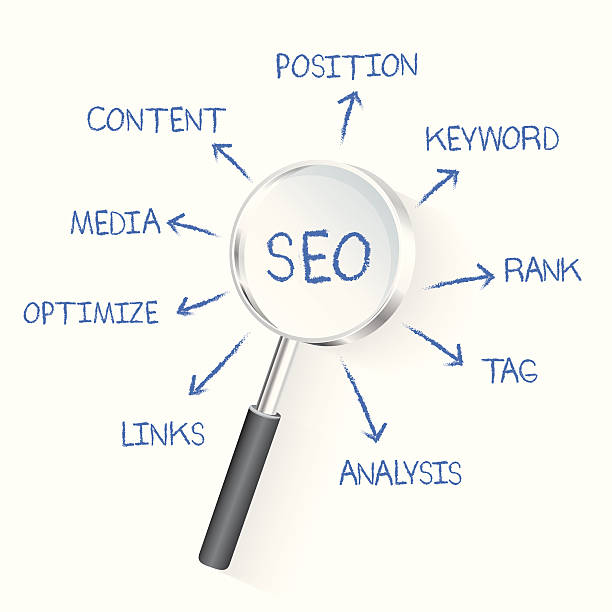
Off-Page SEO refers to a set of actions taken outside of your website to improve your site’s ranking in search engines.
In fact, off-page SEO shows search engines that other websites and internet users consider your website valuable and credible.
This credibility is achieved through links, social media shares, and brand mentions.
The importance of #off_page_seo is that it has a direct impact on the credibility and trust of your website.
Google and other search engines use off-page SEO signals to determine website rankings.
The stronger your website is in terms of off-page SEO, the more likely it is to rank higher in search results.
Also, off-page SEO can help increase website traffic, improve brand awareness, and increase sales.
In other words, if your website has great content and a suitable design, but doesn’t have good off-page SEO, you may not be able to reach your full potential.
Off-Page SEO complements On-Page SEO, and both are essential for success in the digital world.
For example, getting backlinks from reputable sites related to your field is one of the most important aspects of off-page SEO.
These backlinks show Google that your site is a trusted source in that area.
Also, activity on social networks and producing engaging content that is shared by users also helps improve off-page SEO.
In short, Off-Page SEO is a powerful tool for increasing the credibility and ranking of your website in the competitive online world.
Do you have an online store but your sales are not as you expect? Rasaweb solves your problem forever by designing professional online stores!
✅ Significant increase in conversion rate and sales
✅ Unique user experience for your customers
⚡ Click to get free consultation with Rasaweb!
Most Important Off-Page SEO Factors

Many factors affect off-page SEO, but some of them are more important.
Here we point out the most important of these factors:
- Backlinks Backlinks are the most important factor in off-page SEO.
A backlink is a link from another website to your website.
The more backlinks from more reputable and relevant websites, the more valuable it is.
Getting quality backlinks from websites related to your field can have a significant impact on your website’s ranking. - Domain Authority Domain Authority is a metric that shows how credible and trustworthy a domain is.
The higher the domain authority, the more likely the website is to rank higher in search results.
Domain authority is affected by various factors, including the number and quality of backlinks, the age of the domain, and the content of the website. - Brand Mentions Brand Mentions refer to mentioning your brand name on websites, articles, and social networks without linking to your website.
Even if there is no link, brand mentions show Google that your brand is becoming known and is credible in its field. - Social Media Activity Social Media activity can help improve off-page SEO.
Sharing website content on social networks can increase traffic, increase brand awareness, and receive backlinks. - Reviews and Ratings Reviews and Ratings can have a positive effect on off-page SEO.
Positive customer reviews and high ratings can help increase the trust of users and search engines in your website.
Finally, keep in mind that off-page SEO is an ongoing process and requires effort and follow-up.
By focusing on key factors and providing quality content, you can improve your website’s off-page SEO and rank better in search results.
Off-Page SEO is a long-term investment that can have a significant return for your business.
Effective Link Building Strategies for Off-Page SEO
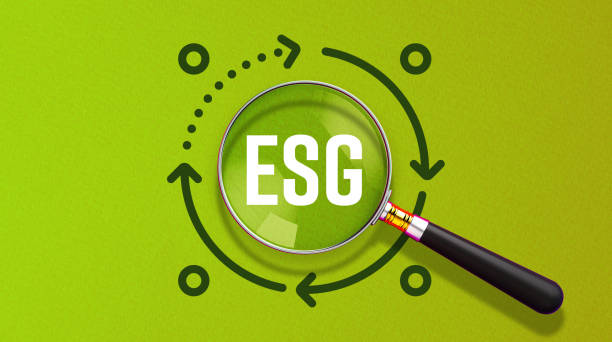
Link Building is one of the most important and challenging aspects of Off-Page SEO.
The goal of link building is to obtain quality backlinks from reputable websites related to your field.
Here are some effective link building strategies:
- Creating Valuable Content Creating Valuable Content is the first and most important step in link building.
If your content is engaging, informative, and helpful, other websites are more likely to link to it.
You can produce various types of content such as articles, videos, infographics, and e-books. - Guest Blogging Guest Blogging means writing articles for other websites in exchange for receiving a backlink.
This is an effective way to get quality backlinks and increase brand awareness.
Try to choose websites that are related to your field and have high credibility. - Broken Link Building Broken Link Building means finding broken links on other websites and suggesting replacing them with a link to your website.
This is a win-win method, as it helps website managers fix broken links and you also receive a backlink. - Competitor Analysis Competitor Analysis can help you identify the link building strategies of your competitors and get inspired by them.
You can use various tools to check your competitors’ backlinks and see which websites they have received backlinks from. - Networking Networking with other bloggers, journalists, and influencers can help you get more backlinks.
You can attend conferences and events related to your field and meet new people.
Off-Page SEO and link building require patience, and its results appear over time.
Avoid unethical and spam methods for link building, as it may cause your website to be penalized by Google.
| Strategy | Advantages | Disadvantages |
|---|---|---|
| Creating Valuable Content | Sustainable and natural, increasing credibility | Time-consuming and requires a lot of effort |
| Guest Blogging | Quality backlinks, increasing brand awareness | Requires finding relevant websites, high competition |
| Finding Broken Links | Simple and effective, helping others | Requires tools and careful review, time-consuming |
The Role of Social Networks in Off-Page SEO
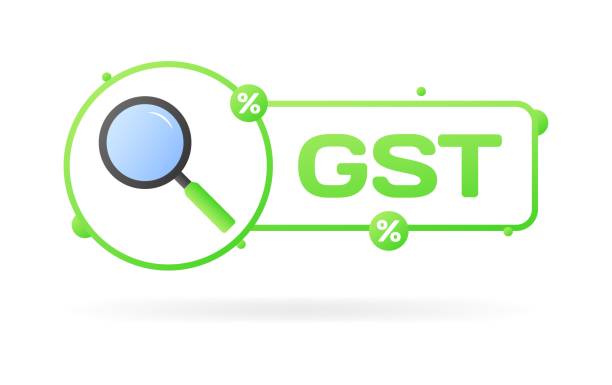
Social Media plays an important role in Off-Page SEO.
Although social networks do not directly increase your website’s ranking in search results, they can have an indirect impact on SEO.
Here are some ways that social networks can help improve off-page SEO:
- Increasing Traffic Sharing website content on social networks can increase website traffic.
The more website traffic, the more likely it is to rank higher in search results.
Google looks at website traffic as a ranking factor. - Increasing Brand Awareness Activity on social networks can help increase your brand awareness.
The more people who are familiar with your brand, the more likely they are to talk about it and link to it. - Improving Engagement Engagement on social networks (such as likes, comments, and shares) can show Google that your content is valuable and engaging.
The more engagement, the more likely your content is to rank higher in search results. - Receiving Backlinks If your content is shared on social networks, other websites may link to it.
Backlinks are still one of the most important factors in Off-Page SEO. - Improving Social Signals Social Signals refer to the activity of users on social networks (such as likes, comments, and shares).
Google uses social signals as one of the ranking factors.
To optimize the use of social networks in off-page SEO, you must have a specific strategy.
Share your content regularly on social networks, engage with your audience, and use relevant hashtags.
Also, try to be active on social networks where your target audience is present.
Is your online store ready to attract maximum customers and sell more? Rasaweb transforms your online business by designing modern and efficient online stores.
✅ Increased speed and improved SEO
✅ Excellent user experience on mobile and desktop⚡ Get free consultation on online store design from Rasaweb!
Online Reputation Management and Its Impact on Off-Page SEO
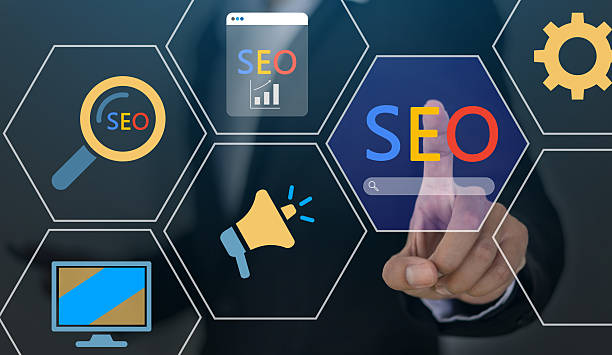
Online Reputation Management refers to the process of monitoring, influencing, and controlling your brand’s reputation on the internet.
Your online reputation can have a direct impact on Off-Page SEO.
If you have a good online reputation, users are more likely to trust your website and interact with it.
Also, other websites may link to your website or mention your brand name.
Here are some ways that online reputation management can help improve Off-Page SEO:
- Increasing Trust If you have a good online reputation, users will have more trust in your website.
This trust can lead to increased website traffic, increased conversion rates, and increased sales. - Receiving Backlinks If you have a good online reputation, other websites may link to your website.
Backlinks are one of the most important factors in Off-Page SEO. - Increasing Brand Mentions If you have a good online reputation, people may mention your brand name on websites, articles, and social networks.
Brand mentions can show Google that your brand is becoming known and is credible in its field. - Improving Ranking Google uses online reputation signals (such as reviews, ratings, and brand mentions) as one of the ranking factors.
If you have a good online reputation, your website is more likely to rank higher in search results.
To manage your online reputation, you should regularly review customer reviews and ratings, respond to complaints and criticisms, and produce positive and valuable content.
You can also use various tools to monitor your online reputation.
Off-Page SEO and online reputation management are two sides of the same coin.
By improving your online reputation, you can also improve your website’s off-page SEO.
Competitor Analysis in Off-Page SEO: What Can We Learn?

Competitor Analysis is one of the most important steps in Off-Page SEO.
By analyzing competitors, you can identify their strategies and get inspired by them.
Also, you can identify their strengths and weaknesses and use this information to improve your Off-Page SEO strategy.
Here are some things you can learn from competitor analysis in Off-Page SEO:
- Backlinks By examining competitors’ backlinks, you can identify websites that have linked to them and try to get backlinks from them.
You can use various tools to check competitors’ backlinks. - Content By reviewing competitors’ content, you can identify the topics they have covered and try to produce better and more comprehensive content.
You can produce various types of content such as articles, videos, infographics, and e-books. - Social Networks By reviewing competitors’ activity on social networks, you can identify their strategy and get inspired by them.
You can see which social networks they use, what type of content they share, and how they interact with their audience. - Keywords By reviewing the keywords that competitors are ranking for, you can identify keywords related to your field and try to rank for them.
You can use various tools to check competitors’ keywords.
To analyze competitors in Off-Page SEO, you must prepare a list of your main competitors and then review them regularly.
You can use various tools to analyze competitors.
Off-Page SEO is a competitive process, and to succeed, you must constantly monitor your competitors and improve your strategy.
Essential Tools for Off-Page SEO
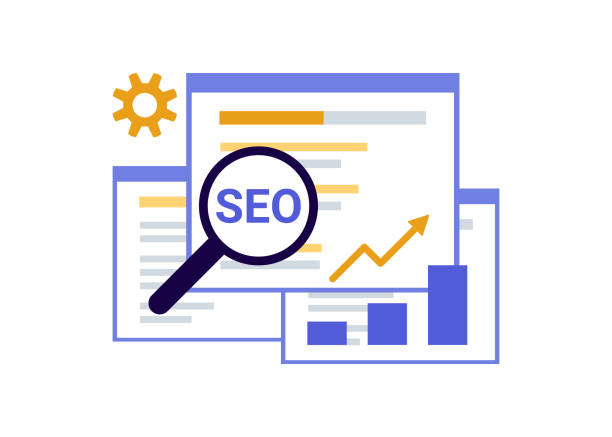
To implement a successful Off-Page SEO strategy, you need various tools.
These tools help you check backlinks, identify keywords, analyze competitors, and track your website’s performance.
Here are some essential tools for Off-Page SEO:
- Ahrefs Ahrefs is one of the most popular and powerful Off-Page SEO tools.
This tool helps you check your backlinks, keywords, competitors, and website traffic. - SEMrush SEMrush is another powerful Off-Page SEO tool.
This tool helps you check your keywords, competitors, website traffic, and advertising performance. - Moz Pro Moz Pro is a comprehensive Off-Page SEO tool that helps you check your keywords, competitors, backlinks, and website ranking.
- Google Search Console Google Search Console is a free tool from Google that helps you check your website’s performance in search results.
You can use this tool to identify technical problems, check keywords, and submit a sitemap. - Google Analytics Google Analytics is a free tool from Google that helps you check your website’s traffic.
You can use this tool to identify traffic sources, check user behavior, and track conversions.
These tools help you collect the data you need to make informed decisions in Off-Page SEO.
By using these tools, you can optimize your Off-Page SEO strategy and get better results.
Measuring and Evaluating Off-Page SEO Results

After implementing an Off-Page SEO strategy, it is important to measure and evaluate its results.
This helps you understand whether your strategy is effective or not, and what changes you need to make.
Here are some key metrics for measuring and evaluating Off-Page SEO results:
- Keyword Rankings Keyword Rankings show where your website ranks in search results for your target keywords.
You can use various tools to check your keyword rankings. - Organic Traffic Organic Traffic refers to the traffic that comes to your website through search results.
Increasing organic traffic indicates that your Off-Page SEO strategy is effective. - Domain Authority Domain Authority is a metric that shows how credible and trustworthy a domain is.
Increasing domain authority indicates that your Off-Page SEO strategy is effective. - Backlinks The number and quality of backlinks indicates how credible your website is.
Increasing the number and quality of backlinks indicates that your Off-Page SEO strategy is effective. - Conversion Rate Conversion Rate shows how many of your website visitors become customers.
Increasing the conversion rate indicates that your Off-Page SEO strategy is effective.
| Indicator | Description | Importance |
|---|---|---|
| Keyword Rankings | Website’s position in search results for target keywords | Very High |
| Organic Traffic | Number of visitors from search engines | Very High |
| Domain Authority | Website’s domain authority and power | High |
| Backlinks | Number and quality of incoming links to the website | High |
By tracking these metrics, you can continuously evaluate the performance of your Off-Page SEO strategy and make changes if needed.
Are you tired of your company’s website not meeting your expectations? With Rasaweb, design a professional website that showcases the true face of your business.
✅ Increase attraction of new customers and sales leads
✅ Increase your brand’s credibility and trust with the audience
⚡ Get free website design consultation!
Common Mistakes in Off-Page SEO and How to Avoid Them

In Off-Page SEO, like any other field, there are mistakes that can damage your website’s ranking.
Avoiding these mistakes is essential for success in Off-Page SEO.
Here are some common mistakes in Off-Page SEO and how to avoid them:
- Buying Backlinks Buying Backlinks is an unethical and risky method that can lead to your website being penalized by Google.
Instead of buying backlinks, try to get quality backlinks by producing valuable content and natural link building. - Over-Optimization Over-Optimization can show Google that you intend to artificially increase your website’s ranking.
Instead of over-optimization, try to have natural and balanced link building. - Ignoring Social Networks Social Media plays an important role in Off-Page SEO.
Ignoring social networks can cause you to miss many opportunities to increase traffic, brand awareness, and backlinks. - Not Analyzing Competitors Not Analyzing Competitors can cause you to miss out on their effective strategies.
Regularly check your competitors and get inspired by them. - Not Tracking Results Not Tracking Results can prevent you from evaluating the performance of your Off-Page SEO strategy and making changes if needed.
Regularly track your Off-Page SEO results.
By avoiding these mistakes, you can improve your Off-Page SEO strategy and get better results.
Off-Page SEO is an ongoing process and requires effort and follow-up.
The Future of Off-Page SEO: What Changes Should We Consider?

Off-Page SEO is constantly changing, and to succeed, you must keep up with the latest changes and trends.
Here are some changes we should consider in the future of Off-Page SEO:
- Greater Importance to User Experience Google is increasingly emphasizing User Experience.
Websites that provide a better user experience are more likely to rank higher in search results. - Greater Importance to High-Quality Content Google is increasingly emphasizing High-Quality Content.
Websites that provide high-quality content are more likely to rank higher in search results. - Greater Importance to Social Signals Google is increasingly emphasizing Social Signals.
Websites that are more popular on social networks are more likely to rank higher in search results. - Greater Importance to Mobile SEO Google is increasingly emphasizing Mobile SEO.
Websites that are optimized for mobile devices are more likely to rank higher in search results.
To succeed in Off-Page SEO in the future, you must focus on providing excellent user experience, producing high-quality content, increasing engagement on social networks, and optimizing your website for mobile devices.
Off-Page SEO is an ongoing process and requires learning and adaptation.
Off-Page SEO is a great way to get known among users. With effort and follow-up, you can have a successful Off-Page SEO strategy.
Frequently Asked Questions
| Row | Question | Answer |
|---|---|---|
| 1 | What is Off-Page SEO? | Off-Page SEO refers to a set of actions that are performed outside of your website to improve its ranking in search engines. These actions include building backlinks, being present on social networks, branding, etc. |
| 2 | Why is Off-Page SEO so important? | Off-Page SEO shows search engines that your website is credible, popular, and trustworthy. High-quality backlinks from reputable sites are a strong signal for better ranking and help increase your domain authority. |
| 3 | What are the most important components of Off-Page SEO? | The most important components of Off-Page SEO include: Link Building, Content Marketing, Social Media Marketing, Influencer Marketing, and Online Reputation Management. |
| 4 | What is a backlink and why is it important for Off-Page SEO? | A backlink is a link that points from another website to your website. These links act as a “vote of confidence” from Google and indicate the credibility of your content. The higher the number and quality of backlinks, the better your site’s ranking will be. |
| 5 | What are the types of backlinks in terms of impact on SEO? | There are two main types of backlinks including DoFollow and NoFollow. DoFollow backlinks transfer authority (Link Juice) and directly affect ranking. NoFollows do not transfer authority but can still generate traffic and help make the link profile look natural. (Also UGC and Sponsored) |
| 6 | How can I create quality backlinks for my site? | To build quality backlinks, you can use methods such as: producing excellent and shareable content, guest posting on related and reputable sites, broken link building, digital PR, and competitor backlink analysis. |
| 7 | What are Toxic Backlinks and how do they affect the site? | Toxic or spam backlinks are links that point to your site from low-quality, spam, or irrelevant websites. These backlinks can damage your site’s ranking and even lead to penalties from Google’s algorithms. |
| 8 | What is the role of social networks in Off-Page SEO? | Although social signals (likes, shares, etc.) are not directly a ranking factor, they help with Off-Page SEO. They increase content visibility, increase direct traffic to the site, and ultimately increase the chances of earning natural backlinks and improving brand awareness. |
| 9 | What is the importance of diversity in the backlink profile? | Diversity in the backlink profile means that your links are from different sources (blogs, forums, news sites, directories), with diverse anchor texts, and with a combination of DoFollow and NoFollow links. This diversity shows Google that your link building is natural and organic. |
| 10 | What are the common mistakes in Off-Page SEO that should be avoided? | Common mistakes include: buying backlinks in bulk and from low-quality sources, over-linking with target keywords (Over-optimization), neglecting quality in favor of quantity in link building, lack of diversity in the link profile, and ignoring harmful backlinks and not Disavowing them. |
And other services of Rasa Web advertising agency in the field of advertising
Smart sales automation: A fast and efficient solution for managing campaigns with a focus on marketing automation.
Smart direct marketing: An effective tool to attract customers with the help of Google Ads management.
Smart conversion rate optimization: A creative platform to improve campaign management with Google Ads management.
Smart brand identity: A combination of creativity and technology for user interaction through accurate audience targeting.
Smart customer journey map: A fast and efficient solution for managing campaigns with a focus on custom programming.
And more than hundreds of other services in the field of internet advertising, advertising consulting and organizational solutions
Internet advertising | Advertising strategy | Advertorial
Resources
What is Off-Page SEO and Why is it Important?
,What is Off-Page SEO? | Off-Page SEO Training with Techniques and Examples
,What is Off Page SEO?
,What is Off-Page SEO and What Factors Does it Have?
? Are you looking for a big leap in the digital world? “Rasweb Afrin” Digital Marketing Agency, specializing in Search Engine Optimization (SEO), professional social media management, and user-friendly website design, guides your business to success. With us, have a powerful and lasting presence in the online space.
📍 Tehran, Mirdamad Street, next to the Central Bank, Kazerun South Alley, Ramin Alley No. 6


